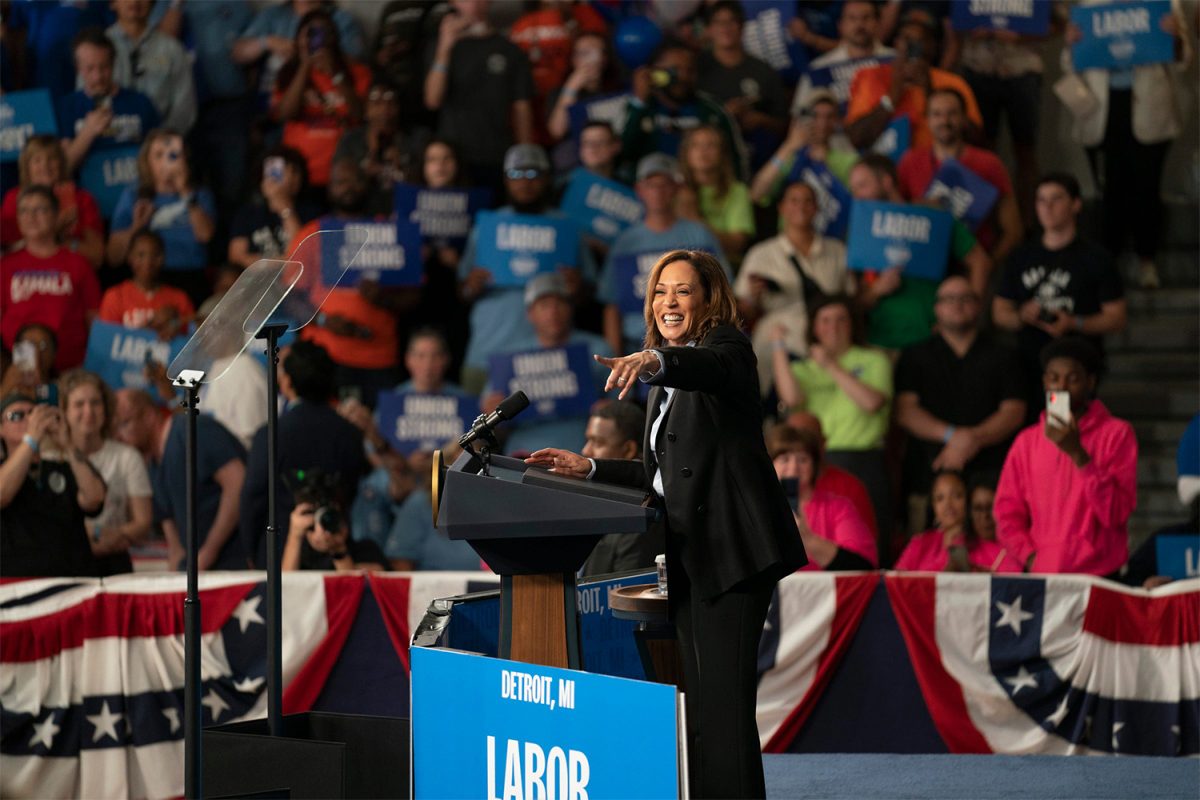Vice President Kamala Harris is on her way to making history by becoming the first-ever woman president of the United States, but some are still uncertain about having a woman in office.
What this group of skeptics doesn’t understand is that, according to a study by the Leadership Circle, “the typical female leader scores higher on effectiveness than 52% of all leaders, whereas the typical male leader scores higher than only 43% of all leaders.”
The overtly sexist argument claims women are too emotional and sensitive to run a country, especially in times of increased stress. The ability to be compassionate and sensitive to the world around us, however, is nothing short of a superpower. Women consistently rank higher than men for desired traits in good leaders.
Women’s brains have also been shown to handle elevated cortisol levels more effectively than men’s, disproving the idea that women are incapable of navigating high-stress situations from a biological standpoint.
A female president could promote and enhance gender equality, which is especially important when discussing abortion rights — a key topic of debate leading up to this year’s election.
Male elected officials should not have input on women’s reproductive choices — let alone a man with a track record of publicly offending and sexualizing women. I personally don’t want my freedom of choice denied by a man who once said that although Kim Kardashian doesn’t have a good body, she does have a “fat ass.” Former President Donald Trump even went so far as to comment on his own daughter’s breasts, saying they have always been “very voluptuous.”
I don’t believe abortion legislation should be introduced or passed by a male-dominated Congress. The ability to get pregnant is a female experience, and the choice to terminate or continue a pregnancy should, therefore, remain with women.
Harris might not be the biological mother of her two stepchildren, Cole and Ella, but that doesn’t mean she doesn’t understand the maternal bond forged from caring for another living being, nor does it mean she doesn’t understand the need for access to safe abortions nationwide.
Harris has been a longtime supporter of abortion rights. She is the first ever vice president to visit a Planned Parenthood clinic. She also stands behind contraception and in vitro fertilization, or IVF, criticizing vice-presidential candidate JD Vance for wanting to ban the procedure.
Abortion rights are not the only contentious topic that Harris compassionately acknowledges within her campaign. Unlike her opponent, she supports a ban on assault weapons — the leading cause of death for children in the U.S.
It is ironic and hypocritical for Trump’s campaign to have become obsessed with limiting access to abortion, IVF, and contraception, and then completely neglect ongoing policies regarding gun control, sexual education, and the foster care system.
Though these are just a couple items on Harris’s campaign agenda, one’s decision to elect a woman should be based on more than unfulfilled campaign promises.
Previous candidates have been judged by a variety of subconscious biases. Voters are influenced by a candidate’s height, attractiveness, and similarity to their own appearance.
While it’s impossible to erase these biases, confronting them with fact-based evidence could make a difference at the polls. It’s abundantly clear. Women lead differently than men. Electing a woman could offer a fresh perspective on important matters that have not reached a collective consensus in years. Who knows, it might also prove to us all that women lead better than men.
When the U.S. elects a female president, maybe we will finally talk less about what a woman is wearing and more about what she is saying. When we elect a female president, maybe more young girls will find the confidence to take on leadership roles instead of settling for lower positions of power. When we elect a female president, maybe our looks will matter less, and our minds will matter more.
When the time comes for us to elect a female president, we will be better off.



